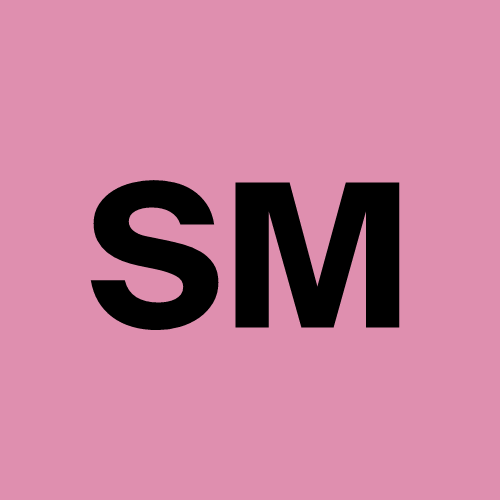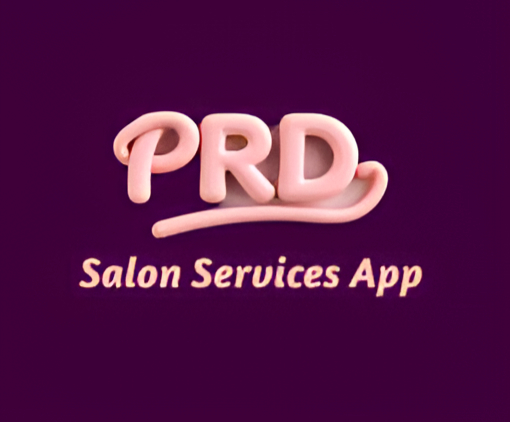Creating a Salon Service PRD for Success
 Sagar Maheshwari
Sagar MaheshwariTable of contents
- Breaking Down the PRD
- 1. Objective – Kya Banega?
- 2. In Scope – Kya Banayenge?
- 3. Out of Scope – Kya Abhi Nahi Banayenge?
- 4. Features and Requirements – Product Karega Kya?
- 5. User Stories – The User Is King
- 6. Technical Requirements – Tech Stack Decisions
- 7. Design Requirements – Dikhave pe Mat Jao, Design Pe Jao
- 8. Success Metrics – Kaise Pata Chalega Ki Kamyab Hue?
- 9. Timeline – Kab Tak Banega?
- Conclusion

“Success is not just about having a great idea; it's about having a plan to turn that idea into reality.”
Welcome, techies!
Ready to take your salon services online? Transforming your salon business requires more than just a vision; it needs a detailed plan. That’s where a Product Requirements Document (PRD) comes in.
In this blog, we'll walk you through the essential steps to create a PRD that will help you turn your salon service idea into a successful web application. So, grab a cup of chai, and let's get started on this exciting journey! 🚀
Breaking Down the PRD
1. Objective – Kya Banega?
Purpose: Define the main goal of your online salon service web application.
Example: Create an intuitive and user-friendly web application that allows customers to book salon services online, view available services, and manage their appointments seamlessly.
2. In Scope – Kya Banayenge?
Purpose: Outline what features and functionalities will be included.
Example:
For Customers:
Online booking system with calendar view. 📅
Service menu with detailed descriptions and prices. 📜
User accounts with profile management. 👤
Secure payment processing. 💳
Appointment reminders via email/SMS. 📧
Customer reviews and ratings. ⭐
Loyalty program and promotional offers. 🎁
FAQ section and customer support chat. ❓
For Salon Owners:
Appointment management dashboard. 🗓️
Customer profile and history management. 👥
Sales and revenue tracking. 💰
Staff scheduling and management. 🕒
Inventory management. 📦
Marketing tools for promotional offers. 🎉
Reporting and analytics. 📊
3. Out of Scope – Kya Abhi Nahi Banayenge?
Purpose: Clarify what will not be included in this web application version to manage expectations.
Example:
No in-app video consultations. 🚫
No advanced AI-driven recommendations. 🚫
There is no integration with third-party apps for the initial release. 🚫
There is no multilingual support for the initial release. 🚫
4. Features and Requirements – Product Karega Kya?
Breaking down the functionalities into detailed features.
P1 – Must-Have Features (High Priority)
For Customers:
Booking System: Customers can book appointments online. 📅
Service Menu: Detailed list of available services. 📜
Customer Management: Maintain customer profiles and preferences. 👥
Payment Processing: Secure and multiple payment options. 💳
Appointment Reminders: Send reminders via email/SMS. 📧
Customer Reviews: Allow customers to leave reviews and ratings. ⭐
For Salon Owners:
Appointment Management: View and manage all appointments. 📅
Customer Profiles: Access customer information and history. 👥
Sales Tracking: Monitor sales and revenue. 💰
Staff Scheduling: Manage staff schedules and availability. 🕒
Inventory Management: Track inventory levels and orders. 📦
P2 – Nice-to-Have Features (Medium Priority)
For Customers:
Promotional Offers: Display special offers and discounts. 🎉
Loyalty Program: Rewards for regular customers. 🎁
Newsletter Subscription: Option for customers to subscribe to newsletters. 📬
For Salon Owners:
Marketing Tools: Tools for creating and managing promotions. 🎉
Advanced Reporting: Detailed reports on sales, customer trends, etc. 📊
Customer Feedback: Collect and analyze customer feedback. 📋
P3 - Future Enhancements (Low Priority)
For Customers:
Virtual Consultations: Offer video consultations for beauty advice. 📹
AI Recommendations: Provide personalized service suggestions based on customer data. 🤖
Mobile App: Develop a mobile app for easy booking and management. 📱
Multilingual Support: Enable support for multiple languages. 🌍
For Salon Owners:
Integration with Third-Party Services: Integrate with popular apps like Google Calendar, Apple Calendar, etc. 📅
Advanced Analytics: In-depth analytics for business insights. 📊
Employee Performance Tracking: Track staff performance and feedback. 👥
5. User Stories – The User Is King
Purpose: Understand the product from the user's perspective.
Example:
For Customers:
As a customer, I want to book appointments easily so that I can manage my schedule conveniently. 📅
As a customer, I want to receive reminders for my appointments so that I don't forget them. 📧
As a customer, I want a seamless online payment experience so that I can pay for services securely. 💳
As a customer, I want to see customer reviews and ratings to help me choose the best services.
For Salon Owners:
As a salon owner, I want to manage bookings and customer profiles efficiently so that I can provide personalized services. 👤
As a salon owner, I want to track sales and revenue to monitor business performance. 💰
As a salon owner, I want to schedule my staff effectively to ensure smooth operations. 🕒
As a salon owner, I want to manage inventory levels to ensure we never run out of essential products. 📦
6. Technical Requirements – Tech Stack Decisions
Purpose: Define the technologies you'll use to build the web application.
Example:
Frontend: HTML, CSS, JavaScript (using a framework like React). 🌐
Backend: Node.js, Express.js. 🖧
Database: MongoDB for customer and booking data. 🗃️
Platform: Web application optimized for mobile and desktop browsers. 🖥️📱
Payment Gateway: Integrate with secure payment gateways like Stripe or PayPal. 💳
Email/SMS Service: Use services like SendGrid or Twilio for appointment reminders. 📧
Hosting: Use reliable web hosting services like AWS or Heroku. 🌩️
Security: Implement SSL/TLS encryption and secure user authentication. 🔒

7. Design Requirements – Dikhave pe Mat Jao, Design Pe Jao
Purpose: Outline the look and feel of the web application.
Example:
Simplicity: Clean and modern design with a focus on user experience. ✨
Color Scheme: Soft and relaxing colors to create a soothing ambiance. 🎨
Responsive Design: The web app should work seamlessly on various screen sizes. 📱💻
Intuitive Navigation: Easy-to-use interface with clear navigation. 🗺️
Accessibility: Ensure the web app is accessible to all users, including those with disabilities. ♿
Branding: Consistent use of salon branding elements (logo, colors, fonts). 🖌️
8. Success Metrics – Kaise Pata Chalega Ki Kamyab Hue?
Purpose: Determine how you'll measure the web application's success.
Example:
User Engagement: Track the number of bookings and repeat customers. 📈
Customer Satisfaction: Monitor customer feedback and ratings. ⭐
Revenue Growth: Measure monthly and annual revenue. 💰
Conversion Rate: Percentage of website visitors who book an appointment. 🛒
Churn Rate: Percentage of customers who stop using the service. 📉
Site Performance: Monitor page load times and uptime. 🚀
9. Timeline – Kab Tak Banega?
Purpose: Set a realistic timeline for developing and launching the web application.
Example:
Phase 1: Market research and planning (1 month). 📊
Phase 2: Design and prototyping (1 month). 🎨
Phase 3: Development and testing (2 months). 🛠️
Phase 4: Beta launch and feedback collection (2 weeks). 📣
Phase 5: Official launch and marketing (1 month). 🚀
Conclusion
Whether you’re a beginner or a seasoned professional, a well-thought-out PRD keeps everyone aligned and focused on building a service that customers will love.
So, grab a cup of chai, roll up your sleeves, and start coding your way to success. Your salon's digital transformation awaits! ☕💻
Follow for more of these tech learnings - Hashnode | X | LinkedIn
Subscribe to my newsletter
Read articles from Sagar Maheshwari directly inside your inbox. Subscribe to the newsletter, and don't miss out.
Written by

Sagar Maheshwari
Sagar Maheshwari
MERN Developer | AI-900 certified | C++ | Problem-solving